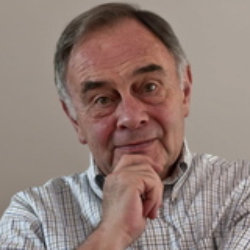ALLAN PATIENCE. What is the Australia-America Leadership Dialogue?
December 21, 2017
Founded in 1992 by former Cocoa-Cola Amatil executive and later Australian consul-general in New York, Phil Scanlon, the Australia America Leadership Dialogue (AALD), in its own words, brings together Australian and American leaders from government, enterprise, media, education and the community to help review and refine the parameters of the Australian-American bilateral relationship. The motivations of those attending these no doubt convivial gathers appear to be taken for granted. Should they?
Australias alliance with the United States is today under more critical scrutiny than at any other time since the ANZUS treaty was signed in 1951. Since the signing, Australia has been involved in all of Americas wars, from Korea to Vietnam, throughout all the grim Cold War years, and in the Middle East. Australias own security interests have been only tangentially served by aligning the country with the US in those wars. They have been a heavy drain on the countrys budget. More significantly, they have cost the country dearly in terms of soldiers lives lost or otherwise devastated by the conflicts in which they have been embroiled, alongside the Americans.
What is most galling is the mindless alacrity with which Australian prime ministers send our women and men into these battles, none of which can ever be described as having achieved their objectives. Remember, for example, John Howard falling over himself like an excited puppy to please George W. Bush, sending Australian troops into that ghastly political quagmire that is contemporary Iraq. And Malcolm Turnbull insists that Australia is joined at the hip with Trumps America, just as Trump ratchets up tensions with North Korea and China in ways that directly threaten Australias national interest. And by being so complicit in that madness-without-end that is Syria, Australia is actually provoking terrorist retaliations.
Given this context, what is an organisation as well resourced and active as the AALD up to? Clearly its primary impetus comes from Australia. Its stated aim is recruiting a broader field of Americas elites beyond the formal diplomatic and security personnel communicating with our embassy people in Washington. One can hardly quibble about this. The more Americans who can be drawn into Australias tiny international orbit the better. Surely?
But what is really going on here? There are two major concerns that need to be canvassed about AALD.
First, is it as innocent as it seems? Is it just a friend raising venture to sell Australia to a wider, wiser audience in the United States?
In fact it is a very selective elite recruitment process that AALD engages in. The mainly senior white men who gather under its auspices are hardly representative of the diversity of political, strategic and business opinion in America today. They do not reflect the incredible turmoil that America is presently experiencing as the old political parties become detached from their voter bases, as populism sweeps through the corridors of the White House, and as neoliberalism smashes its wrecking ball through the US (and therefore the global) economy.
The American mates with whom AALD mainly mixes are steadfast soldiers of the American status quo. Their interests are the interests of the very class that gave America, and the world, the Global Financial Crisis. Their political culture draws heavily on nostalgia for the days of the Cold War and the view that US won the battle that ends history.
In short, AALD is a clique of conservative business managers, reactionary political thinkers, and (mainly) men who would not be overly concerned if a crazy White House instigated a nuclear war with North Korea or with China. And should such a catastrophe occur, none of them would have to put their own lives on the line by going into battle. Rarely do we see such a comfortably complacent bunch of self-congratulators with such easy access to the commanding heights of power.
Secondly, from the Australian side, it is difficult to avoid the fact that AALD is part of the pathology of big noting from which too many Australian politicians and business leaders suffer. Lets remember that Australia is a dependent middle power in regional and global affairs. What little influence it is able to exercise is based on its claim to be a close ally of the United States Americas deputy sheriff in Southeast Asia. Our small population, our very limited military capabilities, and an economy that relies on raw resources exports do not add up to making us a mature, intelligent middle power as global citizen. Far from it!
This fact rankles many a political, military and business leader in this country. They long to have more status, more recognition in the centres of regional and global power. So they invent auspicious sounding roles for themselves, cosying up to what the sentimentalise as our great and powerful friend. For example, consider Julie Bishop, originally one of the harshest critics of the Rudd governments push to get Australia elected to the UN Security Council. In government however she quickly changed her tune, swanning around UN headquarters, being photographed rubbing shoulders with world leaders, insisting on presiding over Council sessions when Australia was in the chair. Her hypocrisy highlights the desperate sense of inferiority Australia suffers from outside its alliance with the United States.
So on the surface AALD can be seen as part of a sad attempt to be trying to keep the tiny dot of Australia blinking on Americas vast political radar. It deserves to be criticised because it is blocking the kind of foreign policy thinking that would see Australia becoming an independent state, a middle power that wins respect because of its independence, a friend of all and enemy of none.
Allan Patience is a fellow in political science in the University of Melbourn
